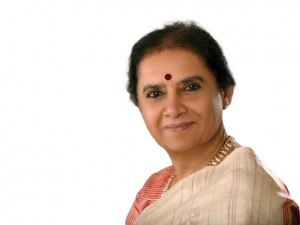 A Firm Believer in Liberal Education, Prof Indira Parikh, Founder President, Flame, Shares How This Belief has its Roots in her Own Life and Career
A Firm Believer in Liberal Education, Prof Indira Parikh, Founder President, Flame, Shares How This Belief has its Roots in her Own Life and Career
YI: You believe in ‘liberal education’. Tell us more.
IP: I not only believe but also live liberal education. I’ve either been a student or a teacher all my life. It took me eight years after marriage to complete my first degree. But I did many things in between. I went to the University of Chicago, University of Copenhagen and a design school, then had a baby and later went back to school. I do believe life has so much to offer and experience that it’s good to explore the ocean full of choices. This concept offers one time, space, moments and a world full of possibilities wherein an individual can actually relish the moments of choices available and then make a choice, which the heart and soul dictates. Liberal education reflects one’s identity, role, aspirations and hopes. To do this, an individual makes realistic appraisals and transforms dreams into reality.
YI: Do you feel that most Indian institutions don’t emphasise the development of soft skills?
IP: FLAME supports a philosophy of holistic development that is only possible through the integration of the body, mind and soul. However, over time, many educational institutions become more and more specialised, which is believed to be focused. But the world and life is rarely sequential and incremental. Life confronts.
YI: FLAME is committed to the revival of the Guru-Shishya Parampara. Why do you think it’s necessary?
IP: Guru-Shishya Parampara is prevalent even today across schools and colleges. As times change, language, practices and forms of the concept also change. Today, the Guru-Shishya Parampara can be reviewed in terms of counselling, coaching and mentoring that refer to creating an environment where an individual reaches out to a more experienced person who can share his/her experiences of life. At FLAME, the mentor-mentee is a formalised structure with time, space and a person to whom students can go to. We also have an Exploration and Dialogue Space (EDS) where any student can go to explore and deal with the emotions and/or concerns of the present.
YI: With close to 40 years of experience in the education industry, how have students changed in recent years?
IP: Today’s students are born in a prosperous and techno-savvy India. They are aspiring, restless and creative. We need to provide space, time, opportunities and challenges for these intelligent minds.
YI: What challenges did you face when you were appointed as dean of IIM Ahmedabad in 2002, as the first woman dean in any IIM?
IP: When I was asked by Professor Dholakia to accept the role of the dean, I did not realise that I was the first woman dean in an IIM. Accepting this role was like any other chair of activity where I was also the first woman to be the chair of many activities. Any such role meant more responsibilities. The challenges were many since in these years IIM-A confronted and dealt with many crisis specially with the government. The institute was struggling for autonomy on many fronts, becoming financially viable, international collaborations and going beyond the student exchange programs. As a woman, there were no issues. I had been in the institute for more than 25 years and the faculty knew me. I thought some were amused while some others waited and watched as to how I would cope, while others were supportive. Looking back, it was one of the most enriching and educative experiences of my life.
YI: A piece of advice for students pressurised into pursuing ‘conventional courses’?
IP: Some students prefer a structured environment. However, they can open their minds, respond to explorations and learn to accept a world that is as is rather than with limited frames. There are obviously no short cuts to success. Most importantly, today is a world which is given and tomorrow is theirs to create. The landscape of tomorrow’s world is theirs and they can make a difference. They need to listen to their heart, soul and spirit, and they will make a right choice.
Volume 2 Issue 2


























